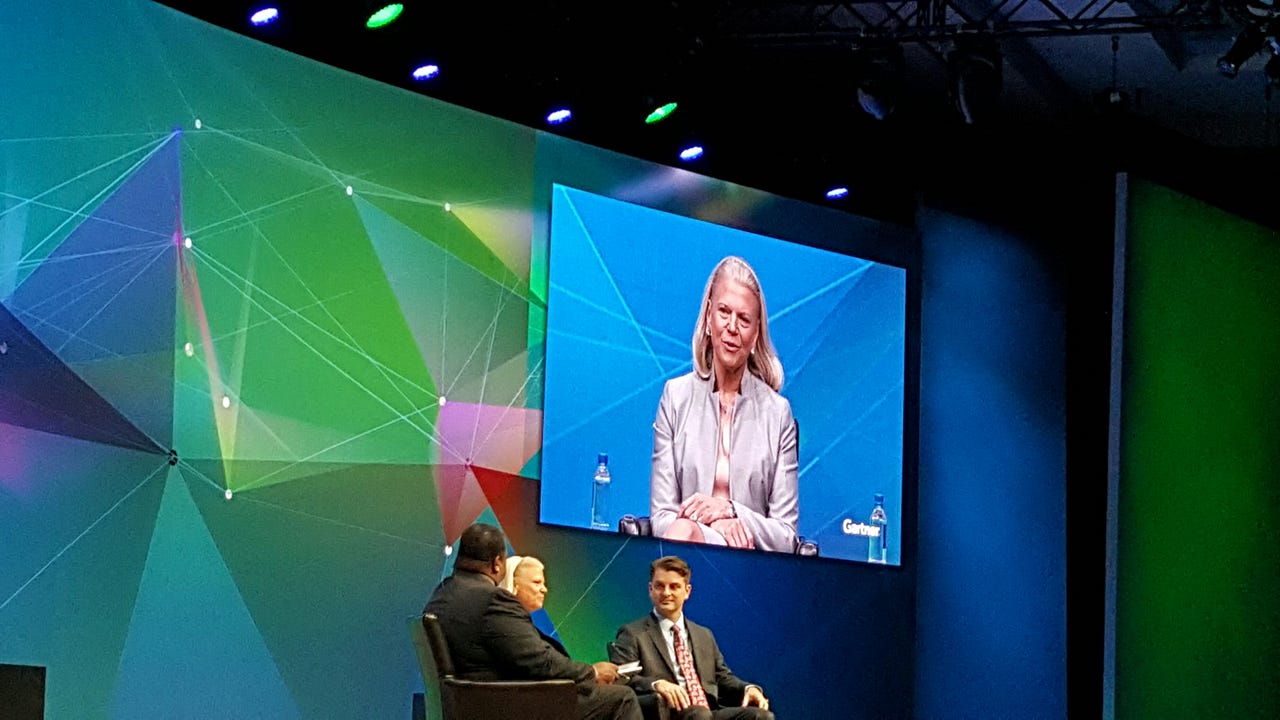IBM, Rometty launch cognitive business unit


ORLANDO--IBM CEO Ginny Rometti on Tuesday outlined plans to launch a consulting unit focused on cognitive computing and how it applies to business.
Like IBM's previous shifts to e-business and smarter planet, cognitive business appears to be the latest rallying cry. "This is our moonshot. This is it," said Rometty.
Gartner Symposium
IBM's news was timed to coincide with Rometty's talk at the Gartner Symposium ITxpo. Rometty is obviously pitching IBM's cognitive computing capabilities at a conference where CIOs are being told that their businesses' main asset will be algorithms.
"Everybody talks about being a digital company. We've put in a foundation of data, cloud, mobility, and security. What does differentiate you?" said Rometty. "The cognitive era will differentiate your company."Rometty said cognitive era will run for decades. "It's an era of technology and an era of business," she said. "These systems will understand, reason and learn."
In a nutshell, IBM is launching a consulting unit--IBM Cognitive Business Solutions--with 2,000 people all devoted to cognitive computing. Think Watson applied to business strategy, processes and automating businesses. The general idea is that IBM can scale Watson and cognitive computing to every industry. The hurdle will be implementing cognitive computing more easily.
"This remains an enterprise innovation company," said Rometty.
Related special reports: AI, Automation, and Tech Jobs | AI and the Future of Business | IT Budgets 2016: A CIO's Guide |Innovation: How to be a World-Changer
The cognitive consulting practice will aim to meld machine learning, analytics and data science. As for the big picture, IBM's cognitive business unit is more evidence of a company trying to transition its model to new eras.
Rometty outlined the company's transition to the cloud and analytics and told customers "that we share this journey of moving from one era to the next." Rometty said she doesn't think in terms of legacy technology and added "that you have a lot of assets already."
She said that traditional enterprises can take existing technology and couple it with innovation and new tools. Rometty emphasized the hybrid approach and reinventing technologies such as the mainframe, which is categorized as legacy. "Our job, like yours, is to take the company from one era to the next," said Rometty.
"What I think is going to matter the most to you is what we're going to invest in," said Rometty, who noted bets on cloud, mobile and analytics as well as cognitive computing.
At the opening Gartner keynote, research chief Peter Sondergaard noted that consumers will likely interact with automated agents in the future. IBM obviously wants Watson to be one of those main agents.
Not surprising, IBM's customer references for cognitive enterprises were in retail, insurance, healthcare and financial services. Rometty said Watson is just the beginning of the cognitive era. Once businesses are digital, intelligent, learning systems will be the differentiator.
Rometty emphasized that learning systems won't replace human labor. She said these systems will help humans process data and become collaborative. "You'll be able to do things and reach things that you couldn't do before," she said.
Among other key points from Rometty:
- Watson isn't artificial intelligence. AI is one of 28 engines behind Watson, she said.
- Hybrid has to be industrialized and IBM strives to provide consistency and choice.
- On the Internet of things, Rometty touted predictive maintenance with Pratt & Whitney engines as well as monitoring pollution in Beijing.
- "Data will be your basis for competitive advantage," she said. "Every company I know is going to be a technology company."
- The future worker will be well grounded in data science.